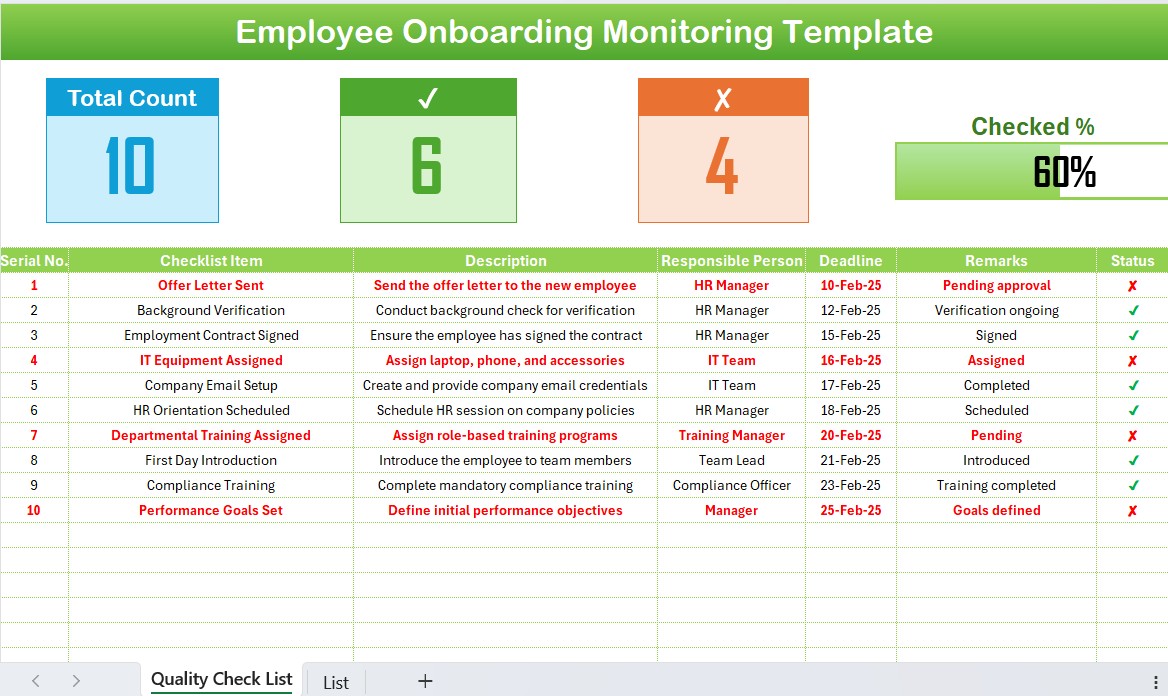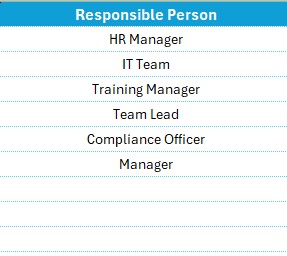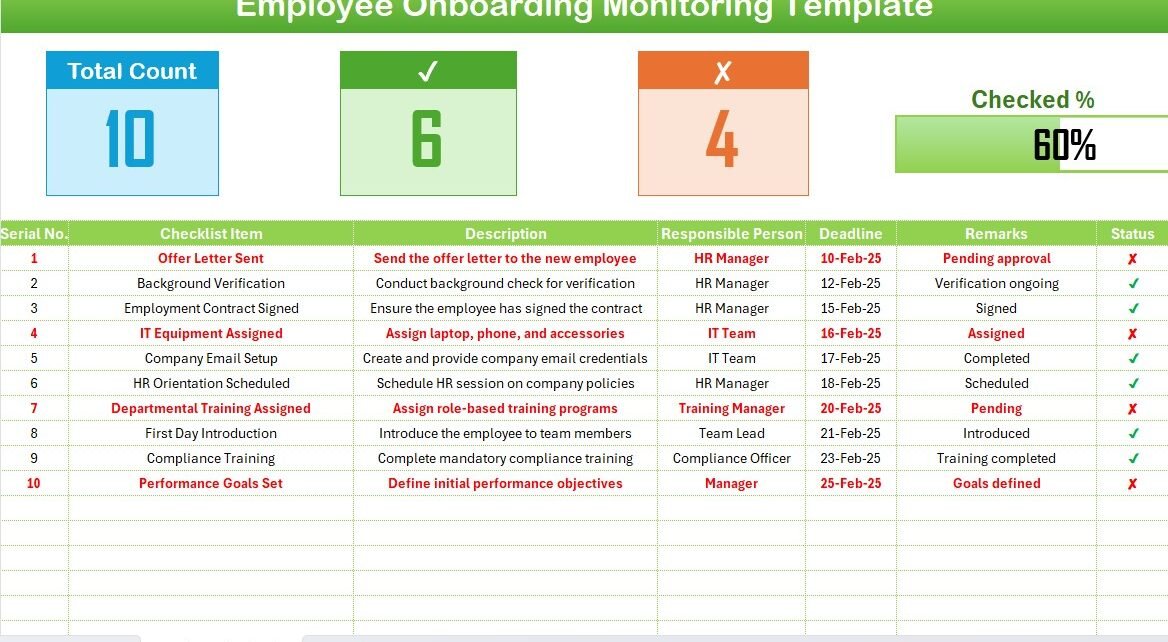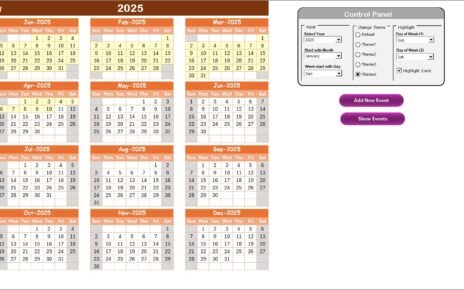Employee onboarding is a crucial process that helps new hires integrate smoothly into a company. Tracking and monitoring this process ensures that all required steps are completed efficiently. An Employee Onboarding Monitoring Template in Excel can help HR teams keep track of onboarding tasks and improve employee experience.
Click to Employee Onboarding Monitoring
In this article, we will cover everything you need to know about using Excel for Employee Onboarding Monitoring, including its advantages, best practices, and frequently asked questions.
Why Use Excel for Employee Onboarding Monitoring?
Excel is a powerful tool for managing and tracking employee onboarding processes. It allows for easy customization, automation, and analysis of onboarding data. Here’s why using Excel for onboarding monitoring makes sense:
- Easy to Use: No need for complex software or additional training.
- Customizable: Tailor the template based on company requirements.
- Automation-Friendly: Use formulas and conditional formatting to track progress.
- Cost-Effective: No need for expensive HR software.
Key Features of the Employee Onboarding Monitoring Template
This ready-to-use Employee Onboarding Monitoring Checklist Template includes two main worksheets:
Employee Onboarding Monitoring Checklist Sheet Tab
Click to Employee Onboarding Monitoring

This is the primary sheet where onboarding tasks are tracked. It includes:
Top Section
- Summary Cards: Displays key onboarding statistics:
- Total Count: Total number of onboarding tasks.
- Checked Count: Number of completed tasks.
- Crossed Count: Number of pending tasks.
- Progress Bar: A visual representation of the percentage of completed tasks.
List Sheet Tab

This sheet captures unique names of responsible persons to create a dropdown list in the main table, ensuring consistency and accuracy in data entry.
Advantages of Employee Onboarding Monitoring in Excel
- Improved Organization: Excel templates help HR teams stay organized by listing all essential onboarding tasks in one place.
- Better Accountability: Assigning responsible persons for each task ensures accountability and timely completion.
- Progress Tracking: With progress indicators, HR managers can quickly assess onboarding status and take necessary actions.
- Error Reduction: Using dropdown lists and predefined fields minimizes data entry errors.
- Customization Options: Companies can modify the template based on their specific requirements.
Click to Employee Onboarding Monitoring
Best Practices for Employee Onboarding Monitoring in Excel
Use Conditional Formatting
- Highlight overdue tasks in red to grab attention.
- Use color coding to differentiate completed and pending tasks.
Automate Progress Tracking
Implement formulas to automatically calculate completion percentages.
Keep Data Up-to-Date
Regularly update the status of tasks to maintain an accurate onboarding record.
Create a Dashboard
Summarize key metrics in a visual dashboard for quick insights.
Use Data Validation
Restrict input in columns like Status to prevent incorrect entries.
Conclusion
Monitoring Employee Onboarding in Excel simplifies the process, enhances efficiency, and ensures that no critical steps are missed. By leveraging ready-to-use templates, HR teams can create a seamless onboarding experience for new hires.
Frequently Asked Questions (FAQs)
How do I use the Employee Onboarding Monitoring Template?
Simply enter the employee details and update the Status column with ✔ (completed) or ✘ (pending). The template will automatically track progress.
Can I customize this template?
Yes, you can add or remove columns, change responsible persons, and modify checklist items based on your organization’s needs.
How can I automate task tracking in Excel?
You can use Excel formulas, conditional formatting, and data validation to automate progress tracking and highlight overdue tasks.
Is this template suitable for large organizations?
Yes, but for larger companies, you may consider integrating Excel with Power BI or HR software for more advanced analytics.
How do I ensure data accuracy?
Use drop-down lists, predefined fields, and regular updates to maintain data accuracy.
Click to Employee Onboarding Monitoring
Visit our YouTube channel to learn step-by-step video tutorials
View this post on Instagram



